Peugeot 3008 vs VW ID.7 – Which car suits you better?
Costs and Efficiency:
Price and efficiency are often the first things buyers look at. Here it becomes clear which model has the long-term edge – whether at the pump, the plug, or in purchase price.
Peugeot 3008 has a distinct advantage in terms of price – it starts at 35100 £, while the VW ID.7 costs 46400 £. That’s a price difference of around 11233 £.
In terms of energy consumption, the advantage goes to the VW ID.7: with 13.60 kWh per 100 km, it’s noticeable more efficient than the Peugeot 3008 with 16.90 kWh. That’s a difference of about 3.30 kWh.
As for range, the VW ID.7 performs barely noticeable better – achieving up to 708 km, about 10 km more than the Peugeot 3008.
Engine and Performance:
Power, torque and acceleration are the classic benchmarks for car enthusiasts – and here, some clear differences start to show.
When it comes to engine power, the VW ID.7 has a slight edge – offering 340 HP compared to 325 HP. That’s roughly 15 HP more horsepower.
In acceleration from 0 to 100 km/h, the VW ID.7 is a bit quicker – completing the sprint in 5.40 s, while the Peugeot 3008 takes 6 s. That’s about 0.60 s faster.
In terms of top speed, the Peugeot 3008 performs somewhat better – reaching 220 km/h, while the VW ID.7 tops out at 180 km/h. The difference is around 40 km/h.
There’s also a difference in torque: VW ID.7 pulls noticeable stronger with 679 Nm compared to 511 Nm. That’s about 168 Nm difference.
Space and Everyday Use:
Beyond pure performance, interior space and usability matter most in daily life. This is where you see which car is more practical and versatile.
Both vehicles offer seating for 5 people.
In curb weight, Peugeot 3008 is evident lighter – 1648 kg compared to 2180 kg. The difference is around 532 kg.
In terms of boot space, the VW ID.7 offers barely noticeable more room – 532 L compared to 520 L. That’s a difference of about 12 L.
In maximum load capacity, the VW ID.7 performs minimal better – up to 1586 L, which is about 106 L more than the Peugeot 3008.
When it comes to payload, Peugeot 3008 barely noticeable takes the win – 467 kg compared to 465 kg. That’s a difference of about 2 kg.
Who wins the race?
The Peugeot 3008 proves to be only a minor advantage and therefore becomes our DriveDuel Champion!
Peugeot 3008 is the better all-rounder in this comparison.
Costs and Consumption
View detailed analysis
Engine and Performance
View detailed analysis
Dimensions and Body
View detailed analysis
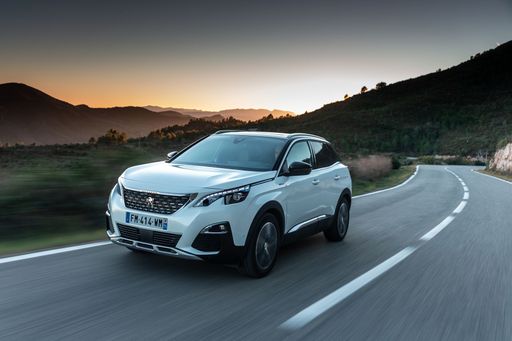 @ Peugeot / Stellantis Media
@ Peugeot / Stellantis Media
Peugeot 3008
Peugeot 3008
The Peugeot 3008 blends bold French styling with a surprisingly grown-up interior that makes even dull commutes feel a little bit special. Practical enough for family life yet lively to drive, it’s a clever all‑rounder that stands out from the crossover crowd without shouting for attention.
details @ Peugeot / Stellantis Media
@ Peugeot / Stellantis Media
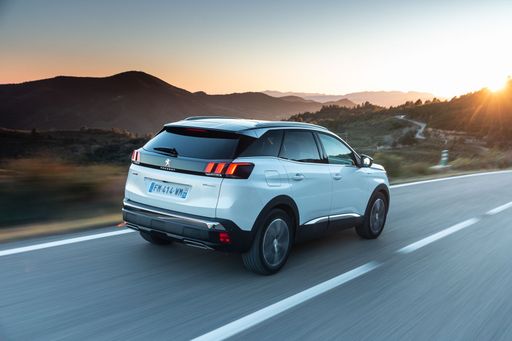 @ Peugeot / Stellantis Media
@ Peugeot / Stellantis Media
 @ Peugeot / Stellantis Media
@ Peugeot / Stellantis Media
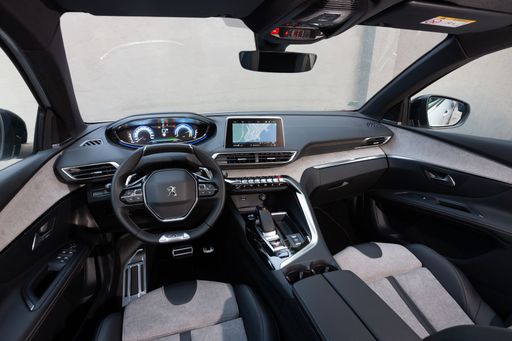 @ Peugeot / Stellantis Media
@ Peugeot / Stellantis Media
VW ID.7
VW ID.7 arrives as Volkswagen's electric grand tourer, pairing a low-slung, aerodynamic silhouette with a calm, understated interior that prioritizes comfort and space. It’s a sensible choice for buyers who want a relaxed, high-tech cruiser that covers motorway miles with poise rather than bravado.
details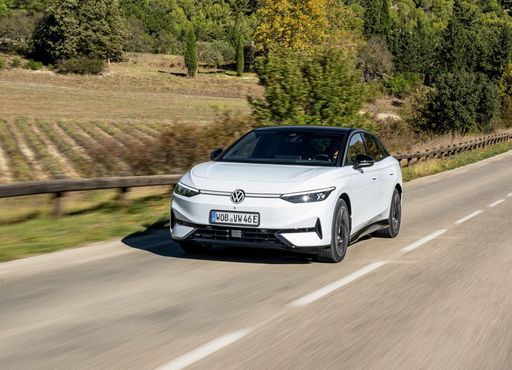 @ Volkswagen AG / VW Media
@ Volkswagen AG / VW Media
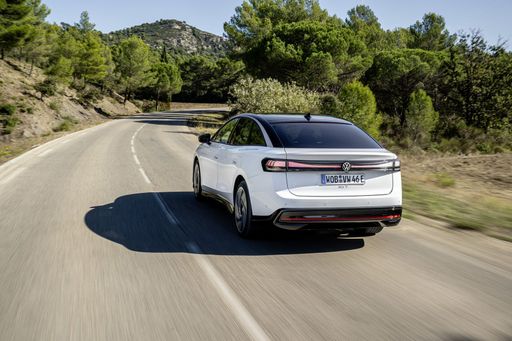 @ Volkswagen AG / VW Media
@ Volkswagen AG / VW Media
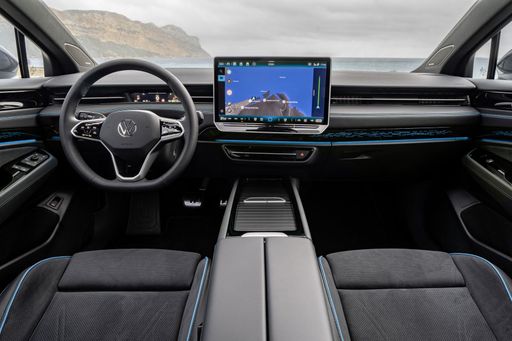 @ Volkswagen AG / VW Media
@ Volkswagen AG / VW Media
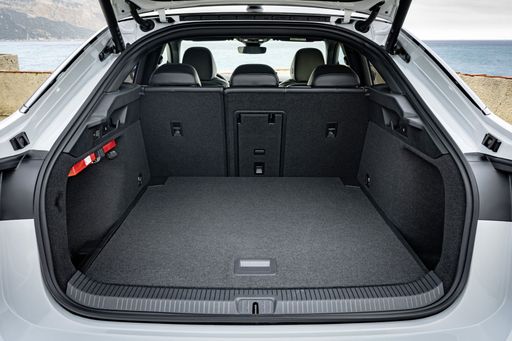 @ Volkswagen AG / VW Media
@ Volkswagen AG / VW Media
 @ Peugeot / Stellantis Media
@ Peugeot / Stellantis Media
|
 @ Volkswagen AG / VW Media
@ Volkswagen AG / VW Media
|
|
|
|
Costs and Consumption |
|
|---|---|
|
Price
35100 - 52000 £
|
Price
46400 - 54200 £
|
|
Consumption L/100km
2.4 - 5.4 L
|
Consumption L/100km
-
|
|
Consumption kWh/100km
16.9 - 17.6 kWh
|
Consumption kWh/100km
13.6 - 16.2 kWh
|
|
Electric Range
81 - 698 km
|
Electric Range
594 - 708 km
|
|
Battery Capacity
0.4 - 96.9 kWh
|
Battery Capacity
77 - 86 kWh
|
|
co2
0 - 121 g/km
|
co2
0 g/km
|
|
Fuel tank capacity
55 L
|
Fuel tank capacity
-
|
Dimensions and Body |
|
|---|---|
|
Body Type
SUV
|
Body Type
Hatchback
|
|
Seats
5
|
Seats
5
|
|
Doors
5
|
Doors
5
|
|
Curb weight
1648 - 2266 kg
|
Curb weight
2180 - 2325 kg
|
|
Trunk capacity
470 - 520 L
|
Trunk capacity
532 L
|
|
Length
4542 mm
|
Length
4961 mm
|
|
Width
1895 mm
|
Width
1862 mm
|
|
Height
1641 mm
|
Height
1535 - 1536 mm
|
|
Max trunk capacity
1430 - 1480 L
|
Max trunk capacity
1586 L
|
|
Payload
432 - 467 kg
|
Payload
460 - 465 kg
|
Engine and Performance |
|
|---|---|
|
Engine Type
Electric, Petrol MHEV, Plugin Hybrid
|
Engine Type
Electric
|
|
Transmission
Automatic
|
Transmission
Automatic
|
|
Transmission Detail
Reduction Gearbox, Dual-Clutch Automatic
|
Transmission Detail
Reduction Gearbox
|
|
Drive Type
Front-Wheel Drive, All-Wheel Drive
|
Drive Type
Rear-Wheel Drive, All-Wheel Drive
|
|
Power HP
145 - 325 HP
|
Power HP
286 - 340 HP
|
|
Acceleration 0-100km/h
6 - 10.2 s
|
Acceleration 0-100km/h
5.4 - 6.6 s
|
|
Max Speed
170 - 220 km/h
|
Max Speed
180 km/h
|
|
Torque
230 - 511 Nm
|
Torque
545 - 679 Nm
|
|
Number of Cylinders
3 - 4
|
Number of Cylinders
-
|
|
Power kW
107 - 239 kW
|
Power kW
210 - 250 kW
|
|
Engine capacity
1199 - 1598 cm3
|
Engine capacity
-
|
General |
|
|---|---|
|
Model Year
2024 - 2025
|
Model Year
2023 - 2024
|
|
CO2 Efficiency Class
A, D, B
|
CO2 Efficiency Class
A
|
|
Brand
Peugeot
|
Brand
VW
|
What drive types are available for the Peugeot 3008?
The Peugeot 3008 is offered with Front-Wheel Drive or All-Wheel Drive.
The prices and data displayed are estimates based on German list prices and may vary by country. This information is not legally binding.
